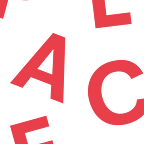Why place-based working?
Authors: Alice Evans and Habiba Nabatu, November 2017
There are systems everywhere from your family as a system through to public service systems addressing severe and multiple disadvantage like homelessness, criminal justice and domestic violence.
This means we’ve had to think about how to start somewhere. How to draw a boundary around the systems in which we’re interested.
Place feels like the natural place to start even though there are many limitations, such as the role national politics plays in setting budgets and agendas. It feels natural because people who face severe and multiple disadvantage come from a place — even if they are not always welcomed there.
We have talked to a lot of people about what our role should be in this place-based approach to systems change. They have told us that currently, the best role we can play as a foundation is to support a range of partners, and a small number of places to focus on how they can enable the conditions for change to flourish.
As we’re not sure if this is the best approach, or where it will lead us, we have framed it as an action inquiry, asking: How do we support places to build the system behaviours?
An inquiry approach allows us space to learn, adapt and grow as the work develops, and it means learning becomes a core part of the way we work. Newcastle University is our learning partner, and their role is to help us and partners to reflect on, learn from, and share with one another emerging practice and change.
What do we mean by place and systems?
When we say systems, we mean ‘a set of things — people, cells, molecules or whatever — interconnected in such a way that they produce their own pattern of behaviour over time’ (Meadows, 2010).
The systems which support people facing severe and multiple disadvantage are complex and rooted in particular places. These systems are not the same in Newcastle, Blackpool, Cardiff or Glasgow.
In each of these places, the systems have their own patterns and behaviours. These systems include people who are getting paid to design and deliver projects as well as people who live and act within places.
We will need to work at different levels within a place. For example, across the local authority, at ward or street level. The tension between communities of interest and communities of place is something that we will have to continually pay attention to.
Each place will define the relevant boundaries for the systems they are seeking to improve. The boundaries of these places will be drawn in relation to the particular challenges that each place is responding to.
Core assumptions
We have identified some core assumptions that are underpinning our work. These were developed through detailed conversations with a range of stakeholders when we were developing this work.
• We are all part of the system
• It’s not our role to make change, we build conditions for change to flourish
• No one person holds the whole truth
• Everyone needs to recognise and acknowledge their own need to change.
• Systems produce outcomes, not organisations or projects.
• Everyone within such a system must have a voice about how the system works.
• Everything and everyone exists in relationships. To fully understand a person or thing, you have to understand their relationships to other things.
• Emotions are present in all of this work. We need to acknowledge and work with this
We know from a historical review of place, that place-based approaches have limitations. Some of the challenges still come from national policy and often, the last people who may feel the benefit of place-based approaches are those experiencing multiple disadvantage. So we recognise the need to still engage with the national agenda.
This inquiry will work to support a small number of places to build the desired system behaviours and to support those places to make changes to improve the way that those systems function for people who face severe and multiple disadvantage.
Our approach
We are taking three approaches to place-based work:
1. Supporting other foundations and national agencies, e.g. Corra Foundation
2. Supporting individual organisations who are taking a collaborative approach to place, e.g. The North Camden Children’s Zone, Wandsworth Community Empowerment Network, Save the Children, Arts at the Old Fire Station
3. Working more directly in places, through intermediaries.
In each place, we are starting somewhere and following wherever it leads. We do not claim that we are everywhere.
